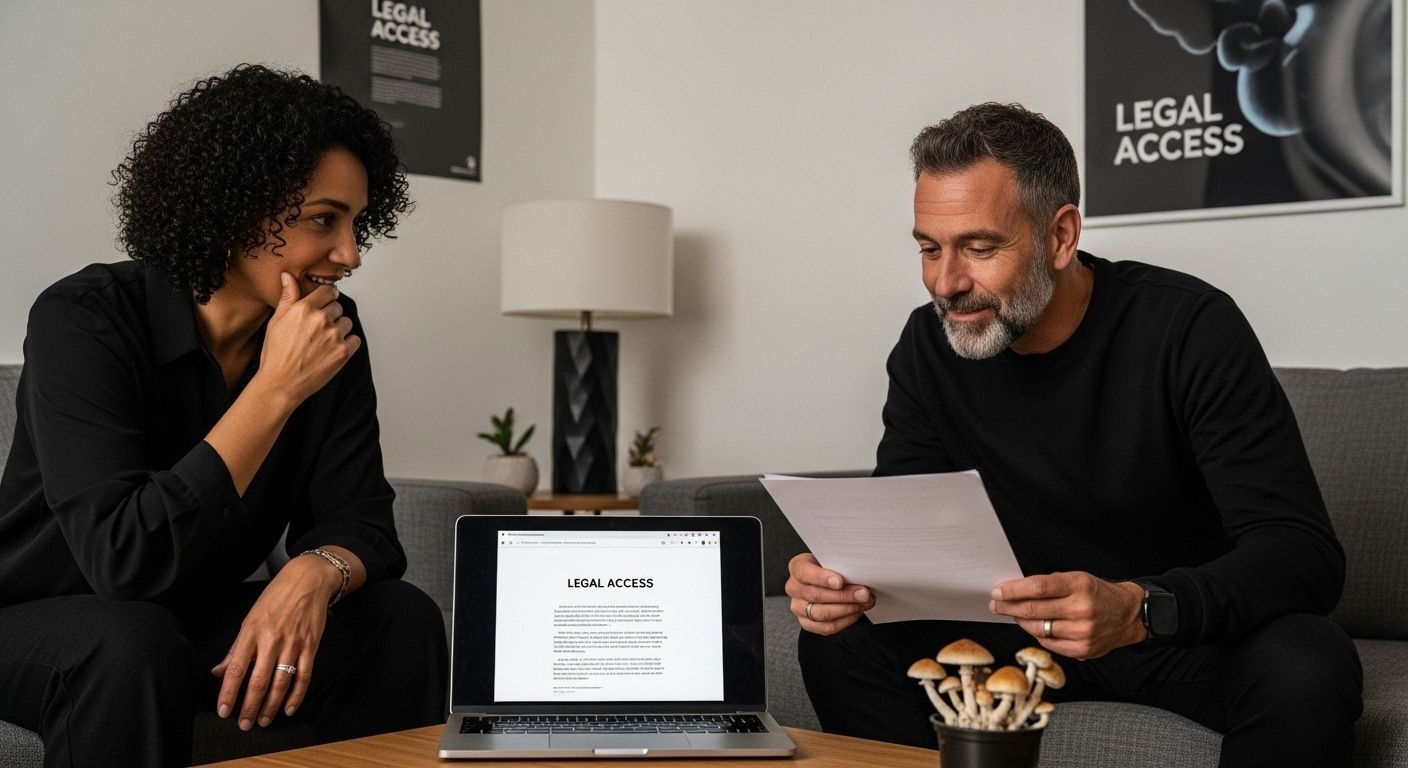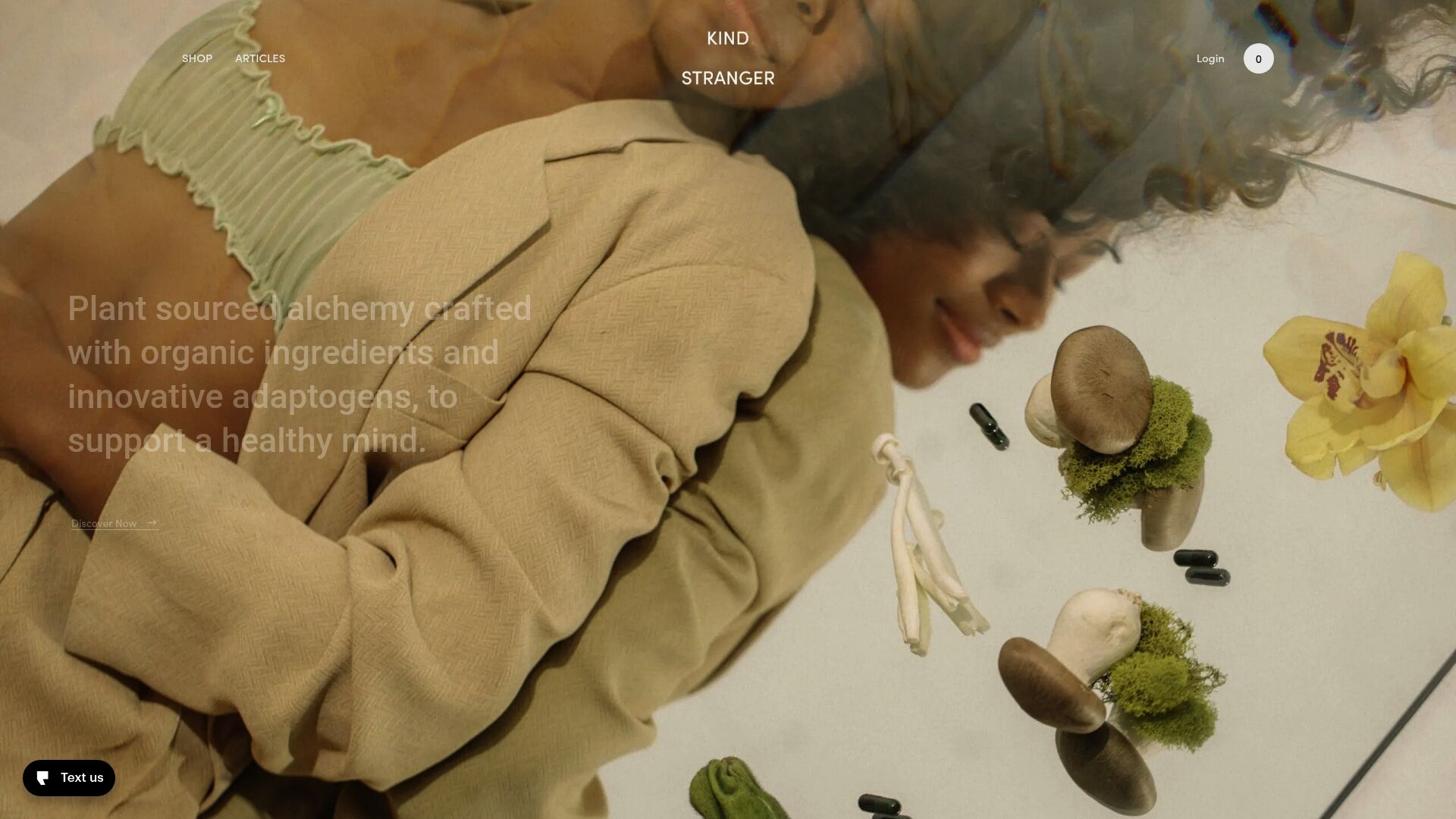Psilocybin mushrooms have shaped spiritual and medical practices for thousands of years. People today often associate them with recent wellness trends, but these fascinating fungi have roots that stretch back over 7,000 years to ancient Mesoamerican rituals. What is truly surprising is that the same mushrooms used by Aztec priests to communicate with the divine are now at the center of modern scientific breakthroughs in treating depression and anxiety.
Table of Contents
- Ancient Uses Of Psilocybin Mushrooms
- Modern Research And Mental Health Benefits
- Microdosing And Wellness Trends Today
- Legal Access And Buying Microdose Mushrooms In Canada
Quick Summary
| Takeaway | Explanation |
|---|---|
| Psilocybin mushrooms have ancient roots | Used over 7,000 years ago for spiritual communication and healing in Mesoamerican cultures, particularly by the Aztecs. |
| Research supports psilocybin for mental health | Clinical trials show significant improvements in treatment-resistant depression and anxiety, suggesting a novel therapeutic approach. |
| Neuroplasticity enhances mental wellness | Psilocybin promotes brain adaptability, creating new neural pathways that can help reset entrenched psychological patterns. |
| Microdosing offers subtle benefits | Users report improved mood and cognitive function through low-dose psilocybin, presenting an alternative to traditional mental health treatments. |
| Legal pathways exist for psilocybin access | Individuals can access psilocybin legally through clinical trials and special programs, despite its controlled substance status in Canada. |
Ancient Uses of Psilocybin Mushrooms
Psilocybin mushrooms have a profound and intricate history deeply rooted in human spiritual and healing practices across diverse civilizations. These remarkable fungi were not merely recreational substances but sacred tools for understanding consciousness, connecting with spiritual realms, and treating various physical and psychological conditions.
Sacred Rituals and Spiritual Connections
Archaeological evidence suggests that psilocybin mushroom use dates back over 7,000 years, with some of the most significant historical documentation emerging from Mesoamerican cultures. The Aztecs, in particular, held these mushrooms in extraordinary reverence, calling them teonanacatl, which translates to “god’s flesh.” According to research published in PubMed, these indigenous societies viewed psilocybin mushrooms as a direct conduit to divine communication, using them in complex religious ceremonies that involved healing, prophecy, and spiritual transformation.
Shamanic practitioners would consume these mushrooms in carefully orchestrated rituals, believing they could traverse between physical and spiritual worlds. The mushrooms were seen not as recreational substances but as sacred plant teachers capable of providing profound insights into human existence, community dynamics, and cosmic understanding.
Healing and Medicinal Practices
Beyond spiritual contexts, psilocybin mushrooms played a crucial role in traditional medicine. Studies from the PMC reveal that Mesoamerican societies employed these mushrooms in comprehensive healing practices addressing physical ailments, psychological disturbances, and social conflicts. Shamans and traditional healers used mushroom-induced altered states to diagnose illnesses, understand their root causes, and prescribe holistic treatment approaches.
The healing practices were not limited to individual treatment but extended to community well-being. Mushroom ceremonies often served as collective therapeutic experiences, helping resolve interpersonal tensions, supporting emotional processing, and maintaining social harmony. These practices demonstrated a sophisticated understanding of mental health long before modern psychological frameworks emerged.
To help clarify the main differences between ancient psilocybin use and modern therapeutic approaches, here is a comparison table summarizing key aspects from the article:
| Aspect | Ancient Practices (Mesoamerica) | Modern Research and Use |
|---|---|---|
| Primary Purpose | Spiritual communication, community healing, ritual | Mental health treatment, wellness, personal growth |
| Context of Use | Religious ceremonies, shamanic healing | Clinical trials, microdosing, psychotherapy |
| Administration | Guided by shamans or priests, in group or solo rituals | Administered by therapists or self-administered (micro) |
| Viewed As | Sacred “plant teacher,” tool for insight and healing | Psychoactive therapy tool, cognitive enhancer |
| Community Involvement | Often communal, focus on both individual and collective well-being | Individual-focused, clinical or self-guided |
| Integration into Culture | Included in oral traditions and knowledge transmission by shamans | Integrated with modern medicine and wellness practices |
Cultural Significance and Transmission
Psilocybin mushrooms were more than mere substances they were integral to cultural knowledge transmission. Oral traditions, carefully guarded by elder shamans, ensured that the wisdom associated with these mushrooms was passed down through generations. The rituals surrounding mushroom use were complex, involving specific preparation methods, consumption protocols, and interpretative frameworks that reflected deep cultural sophistication.
Learn more about the neurological impact of psilocybin and how ancient practices continue to inform modern understanding of consciousness and healing. These historical practices represent a profound testament to humanity’s enduring quest to understand consciousness, heal psychological wounds, and connect with deeper dimensions of existence.
Modern Research and Mental Health Benefits
The historical reverence for psilocybin mushrooms has transformed into a rigorous scientific exploration of their potential therapeutic applications. Modern research is uncovering remarkable insights into how these remarkable fungi can support mental health and neurological functioning.
Breaking Through Treatment-Resistant Conditions
Clinical research published in JAMA Psychiatry represents a significant breakthrough in understanding psilocybin’s therapeutic potential. In a groundbreaking randomized clinical trial, researchers demonstrated that psilocybin-assisted therapy produced clinically significant reductions in depression symptoms, with effects sustained for up to four weeks after treatment.
Particularly promising are studies focusing on treatment-resistant mental health conditions. Individuals who have not responded to traditional pharmaceutical interventions are showing remarkable improvements through carefully controlled psilocybin therapy. These studies suggest that psilocybin may offer a novel approach to addressing complex psychological challenges that conventional treatments struggle to resolve.
Neurological Mechanisms and Brain Plasticity
Beyond symptom management, researchers are fascinated by psilocybin’s impact on brain function. Neuroimaging studies reveal that psilocybin promotes neuroplasticity, essentially helping the brain form new neural connections and pathways. This mechanism could explain its potential in treating conditions characterized by rigid thought patterns, such as depression, anxiety, and addiction.
Neuroscientific research indicates that psilocybin interacts with serotonin receptors in unique ways, temporarily disrupting default brain networks. This disruption appears to allow for increased communication between brain regions that typically do not interact, potentially resetting entrenched psychological patterns.
Holistic Mental Wellness Approach
Modern research is expanding beyond traditional medical models, exploring psilocybin’s potential for broader mental wellness. Explore how psilocybin supports neurological health and offers a holistic approach to mental well-being. Studies are investigating its applications in enhancing creativity, emotional processing, and overall psychological resilience.
Researchers are particularly interested in psilocybin’s potential for transformative psychological experiences. Unlike traditional pharmaceuticals that aim to suppress symptoms, psilocybin appears to facilitate profound personal insights and emotional breakthroughs. This approach aligns more closely with integrative mental health models that view healing as a comprehensive process of personal growth and understanding.
The emerging scientific narrative around psilocybin mushrooms represents a fascinating convergence of ancient wisdom and cutting-edge research. What were once sacred tools in traditional healing practices are now being carefully studied as potential therapeutic agents, bridging centuries of human understanding about consciousness, healing, and mental wellness.
Microdosing and Wellness Trends Today
Microdosing psilocybin has emerged as a transformative wellness practice, representing a nuanced approach to mental health and personal development that challenges traditional pharmaceutical paradigms. This contemporary trend reflects a growing interest in subtle, intentional approaches to enhancing cognitive and emotional well-being.
Scientific Insights and User Experiences
Recent research published in PubMed reveals compelling insights into microdosing practices. Studies indicate that individuals who microdose psychedelics, particularly psilocybin, report significant health-related motivations and demonstrate lower levels of anxiety and depression compared to non-microdosers.
A systematic review analyzing research from 1955 to 2021 highlights the emerging science of microdosing, suggesting that these low-dose interventions could represent a promising frontier in mental wellness strategies. Users consistently report subtle yet meaningful improvements in mood, creativity, focus, and emotional regulation.
Holistic Wellness and Cognitive Enhancement
Microdosing represents more than a treatment modality it’s a holistic approach to personal development. Research indicates that psychedelic microdosing is relatively common and associated with a broad spectrum of socio-affective, cognitive, and physical outcomes.
Practitioners often describe microdosing as a method for neural recalibration, allowing for increased mental flexibility and emotional resilience. Unlike traditional pharmaceuticals that often aim to suppress symptoms, microdosing appears to support the brain’s natural adaptive processes.
Integration with Lifestyle and Wellness Practices
Learn how microdosing can complement meditation practices and support holistic well-being. Modern microdosing protocols emphasize intentional, structured approaches that integrate seamlessly with broader wellness strategies.
This trend reflects a growing recognition that mental health is not merely about symptom management but about cultivating comprehensive psychological resilience. Microdosing represents a sophisticated, nuanced approach that honors both scientific rigor and individual subjective experience.
As research continues to evolve, microdosing stands at the intersection of ancient wisdom and cutting-edge neuroscience, offering a promising pathway for those seeking alternative approaches to mental wellness and personal growth.
Legal Access and Buying Microdose Mushrooms in Canada
Navigating the legal landscape of psilocybin mushrooms in Canada requires a nuanced understanding of current regulations, medical pathways, and emerging therapeutic frameworks. The legal status of psilocybin represents a complex intersection of medical research, healthcare policy, and evolving societal perspectives on mental health treatment.
Regulatory Framework and Current Legal Status
Research from Canadian legal experts confirms that psilocybin remains a Schedule III controlled substance under the Controlled Drugs and Substances Act (CDSA). This classification means that possession, sale, and production are generally illegal without specific authorization from Health Canada.
However, the legal landscape is not entirely restrictive. Comprehensive studies reveal multiple pathways for legal access, including clinical trials, Section 56(1) exemptions, and the Special Access Program (SAP). These mechanisms provide carefully regulated avenues for individuals to access psilocybin under specific medical and scientific conditions.
Medical Access and Therapeutic Pathways
The most promising developments in legal psilocybin access come through medical channels. Recent policy amendments have expanded healthcare professionals’ ability to request psilocybin access through the Special Access Program, particularly for patients with serious or life-threatening conditions.
Notably, Alberta has emerged as a pioneering province, amending its Mental Health Services Protection Regulation to allow licensed clinics to provide psilocybin therapy under specific conditions. This represents a significant step toward more comprehensive therapeutic access.
Navigating Legal Microdosing Options
Explore the latest updates on psilocybin legality in Canada to understand the current regulatory landscape. While direct purchase remains restricted, individuals interested in psilocybin therapy have several potential pathways:
Below is a summary table detailing the different legal avenues and frameworks for accessing psilocybin in Canada as described in the article:
| Legal Pathway | Description | Conditions/Notes |
|---|---|---|
| Clinical Trials | Participation in government-approved scientific research | Requires enrollment, strict oversight |
| Section 56(1) Exemption | Special legal exemption granted by Health Canada for specific medical conditions | Individual application and approval process |
| Special Access Program (SAP) | Allows healthcare providers to request psilocybin access for patients with serious conditions | For patients with serious/life-threatening illnesses |
| Provincial Clinic Access | E.g., Alberta allows licensed clinics to provide psilocybin therapy under regulation | Varies by province, clinic must be licensed |
| Direct Purchase | Buying psilocybin mushrooms or products from retailers | Remains restricted/illegal outside approved channels |
- Participation in approved clinical research studies
- Obtaining Section 56(1) exemptions for specific medical conditions
- Accessing treatment through the Special Access Program
- Consulting with healthcare providers specializing in psychedelic-assisted therapies
The evolving legal framework reflects a growing recognition of psilocybin’s potential therapeutic benefits. Healthcare professionals and researchers continue to advocate for expanded access, viewing psilocybin as a promising treatment for various mental health conditions.
As regulations continue to develop, individuals interested in psilocybin therapy should remain informed about the latest legal developments and consult with qualified healthcare professionals to understand their specific options and potential benefits.

Frequently Asked Questions
What are the historical uses of psilocybin mushrooms?
Psilocybin mushrooms have been used for over 7,000 years, primarily in Mesoamerican cultures, where they were integral to spiritual rituals and healing practices. The Aztecs, for instance, referred to these mushrooms as ‘teonanacatl’, or ‘god’s flesh’, and used them to communicate with the divine.
How does modern research view the mental health benefits of psilocybin?
Current research indicates that psilocybin can significantly reduce symptoms of treatment-resistant depression and anxiety. Clinical trials have shown that psilocybin-assisted therapy can lead to lasting improvements in mental health, suggesting it may offer a novel therapeutic approach.
What is microdosing, and how does it differ from traditional psilocybin use?
Microdosing involves taking small, sub-threshold doses of psilocybin that do not cause hallucinations but may enhance mood, creativity, and cognitive function. Unlike traditional higher doses used in therapeutic or spiritual settings, microdosing focuses on subtle, daily improvements in well-being.
What legal avenues exist for accessing psilocybin in Canada?
In Canada, psilocybin remains a controlled substance, but options like clinical trials, Section 56(1) exemptions, and the Special Access Program provide pathways for legal access, especially for patients with serious conditions. Alberta has also introduced regulations allowing licensed clinics to administer psilocybin therapy.
Experience the Evolution of Psilocybin for Your Modern Wellness
You have read how psilocybin mushrooms have supported healing and insight from ancient rituals to the latest breakthroughs in mental wellness. If you are seeking relief from persistent stress or looking for ways to naturally enhance your mood and focus, you are not alone. Many people face the modern challenge of finding safe and effective tools to boost mental resilience and clarity—especially when traditional options feel insufficient. Microdosing, as discussed in the article, offers a gentle yet powerful approach to support brain health, creativity, and emotional balance.

Discover how you can start integrating these ancient solutions in a modern format. Visit Kind Stranger to explore our collection of microdosed psilocybin gummies and capsules designed for your daily wellness journey. We provide detailed guidance on safe microdosing, legalities, and benefits for Canadians, so you can make informed decisions with confidence. Do not wait to take control of your mental clarity and emotional well-being. Shop now and feel the difference that plant-based support can make in your day-to-day life.


Comments
There are no comments yet.